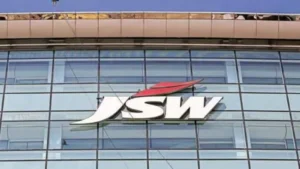Bajaj Auto performed well in the April-June quarter, but that doesn’t seem to be enough for brokers to change their stance on the automaker. While brokers expect better times for Bajaj Auto in the coming quarters, they have also reported some headwinds that could derail the automaker’s growth trajectory.
Brokers have seen signs of an increase in exports, most expect it to happen gradually over the current financial year. On the other hand, the lower combination that caused Bajaj Auto’s EBITDA margin to drop 30 basis points to 19% from 19.3% in Q4FY23 also remains a common hit for most brokers.
Offshore brokerage Morgan Stanley, which has an “overweight” price tag on Bajaj Auto with a target price of Rs 5,063, also forecast a gradual recovery in its exports. The company also considers the expansion of electric vehicles (EVs) and Triumph motorcycles in the domestic market as key controllable items for Bajaj Auto. In addition, Morgan Stanley is also overweight in the two-wheeler segment where Bajaj Auto dominates.
For the same reasons, national brokerage Motilal Oswal Financial also expects export and domestic volumes to recover in FY24 from a weak base, which it sees as a recovery. good return for Bajaj Auto. The company also expects Bajaj Auto to benefit from increased market share in the long-term, driven by the trend of premiumization, export opportunities and potential position in the electric scooter market.
Even so, MOFSL has also pointed out that a large portion of Bajaj Auto’s profit pool in India (which includes premium motorcycles and tricycles) is vulnerable to possible electrification disruptions. go out.
Additionally, the brokerage believes that the current valuation of Bajaj Auto stock accurately reflects the expected resilience as well as the risks associated with electric vehicles, but the dividend yield is 4.5- 5.0% will support the script. MOFSL has a “neutral” stance on the Pune-based carmaker, with a price target of Rs 5,150. On the other hand, while Nuvama Institutional Equities also attributed expectations of a gradual recovery, it tied it to economic conditions and dollar availability in African and Asian markets.
Despite that, the brokerage said it expected Bajaj Auto to underperform its peers such as TVS Motors, given its weak presence in domestic scooters and its ability to exposure to foreign markets.
In addition, although the company has chosen to increase its share price target by 4.5% to Rs 5,100 to achieve a slight increase in 2024/25 EPS of 6% per share, the performance is higher, but the company has always maintained the “sustainability” note.
On the other hand, Kotak Institutional Equities is concerned about the impact of increased competition in the popular motorcycle segment on Bajaj Auto. The company believes that increased competition in the segment will affect Bajaj Auto’s entry-level segment portfolio.
In addition, KIE also believes that the export volume of the two-wheeler segment has bottomed out, but the absence of the US dollar and the depreciating currency in Nigeria remains a concern. “While corporate profitability improved significantly in 2023, mainly due to a richer product mix, we do not expect current profitability to be sustained as we expect demand from Africa will recover after the second half of this financial year and grow strongly in 2W Sales,” KIE said in its report.
Consistent with MOFSL’s view, KIE also believes that Bajaj Auto’s current valuation, especially after rising more than 13% over the past three months, reflects its upside potential. On that note, the company maintains a “sell” rating on the stock, with a price target of Rs 4,350.
Amid the dark clouds if and but around Bajaj Auto, investors also choose to stay away. As a result, the carmaker’s shares did not react strongly to their earnings and as of 10:08 a.m. the stock was trading up 0.5% at Rs 4,871.94 on the NSE.





